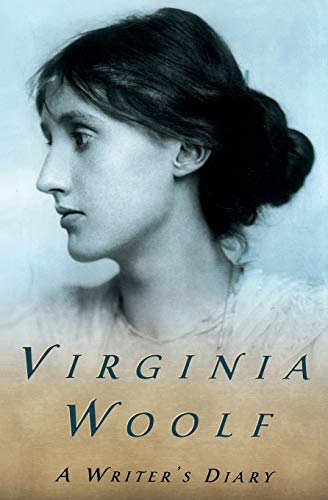 Reddit reviews A Writer's Diary
Reddit reviews A Writer's Diary
We found 2 Reddit comments about A Writer's Diary. Here are the top ones, ranked by their Reddit score.

 Reddit reviews A Writer's Diary
Reddit reviews A Writer's DiaryWe found 2 Reddit comments about A Writer's Diary. Here are the top ones, ranked by their Reddit score.

Umberto Eco's Six Walks in the Fictional Woods is a very accessible introduction to thinking about literature in a way that blends narratology and semiotics. It generally sticks pretty closely to talking about the stories he has in mind, so I wished while reading it that I'd had a copy of Gérard de Nerval's Sylvie on hand, among others.
David Lodge's The Art of Fiction used to be popular as a supplementary textbook in creative writing classes because it just uses nice examples to provide a basic language for talking about literature.
John Sutherland has a number of books intended for a general audience that either introduce basic concepts of literary criticism or that just make careful reading fun, e.g. How Literature Works, A Little History of Literature, and The Literary Detective: 100 Puzzles in Classic Fiction (an omnibus edition of the books he's probably most well known for).
Gaston Bachelard comes to mind as someone who, like Gass, is just a delight to read: The Poetics of Space, Air and Dreams, etc. I'd put some other writers writing about their personal relationships to reading in a similar category: Nicholson Baker, U and I; Virginia Woolf, A Writer's Diary; and even Alison Bechdel, Fun Home.
> a body of work that sets up a sort of boundary
Sorry to skip all of the other lovely things you've written about before this, but this is something that I've been thinking about quite a bit lately, wondering whereabouts I fit into the tradition of boundary-setting—and this is where I find Woolf particularly helpful for me. I'm not yet well-read or experienced enough, but it seems to me that the boundary toward which Woolf was working (if not actually demarcated—though, like /u/LiterallyAnscombe, I think there's plenty of material to further explore) is more discrete, more fragmented across her works than, say, the boundary demarcated by the Wake. I follow in her mostly being preoccupied with Time, but where her primary questions often seemed to be Who or Whom, mine is almost exclusively Where. Elizabeth Bishop, in her "Dimensions for a Novel" essay, has offered me the best ideas where to start, but I'm really beginning to think that setting the boundary of completely evading Time, chronology, temporality in the Novel is entirely beyond my capability. And to some extent, Joyce already does this in the Wake, though I'd like to engage a much more readable style, something more akin to my Guiding Light, The Waves. My "canonical strangeness" (if it's ever to be developed to full maturity) will most likely be quiet and accumulative—perhaps I'll be forgotten even as I'm being read, and somehow that seems appropriate. What I find absolutely fascinating, though, to take a step back to something you mention in an earlier comment I meant to address, I'm not sure if it's our Ultimate Allegiances falling separately to Joyce and Woolf, but I find it interesting that we are essentially working in opposite directions: you would like to concretize that which is air, and I would like to evaporate that which is concrete.
To address the thread you had going over at /r/AskLiteraryStudies, though, The Waves and Between the Acts are easily the two most important works or projects of the last third of Woolf's career. I would also highly, highly suggest trying to find her Writer's Diary. It's not as good as the five-volume set, but it's much easier to find and provides a very respectable introduction to or summary of the complete diaries.
also more bun-buns 4 u